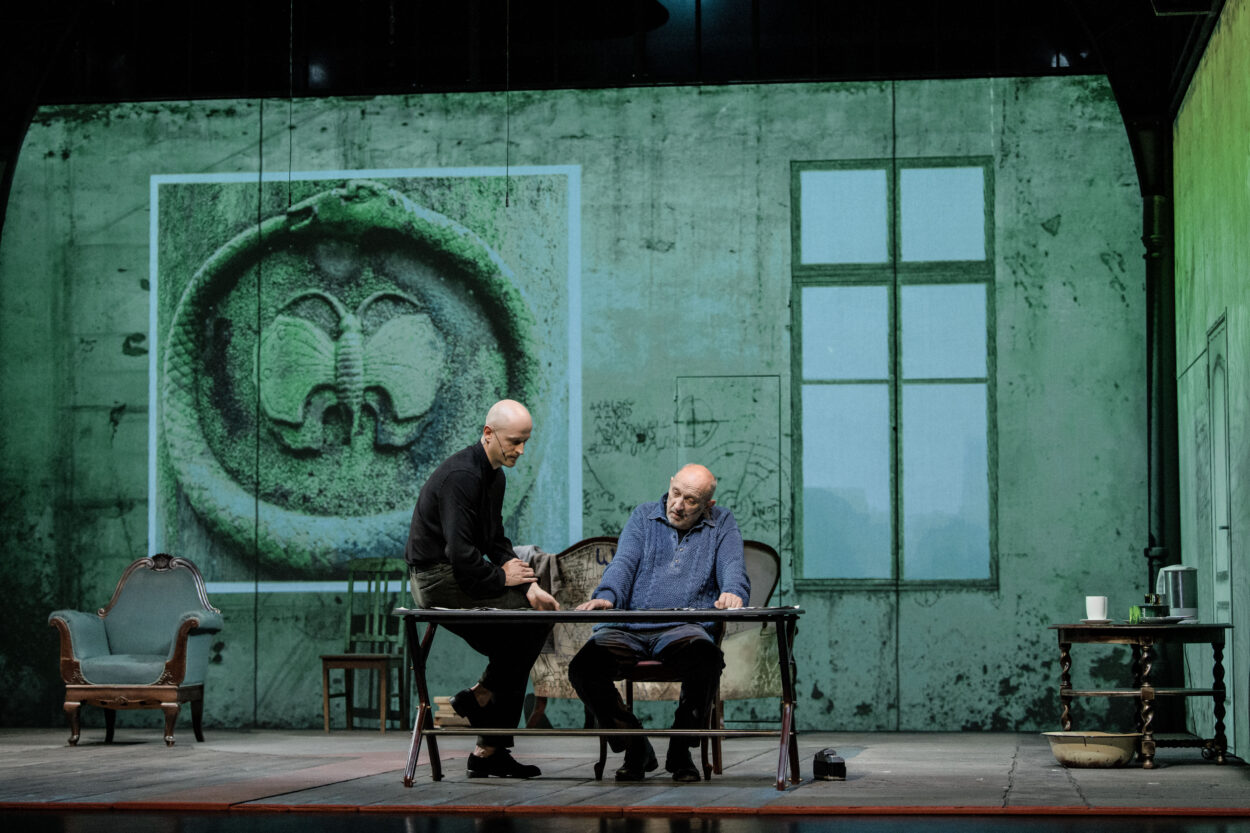
State Youth Theater on the opening of the 56th season presents one of the most prominent nowadays theater director Krystian Lupa's work Austerlitz created by the novel of W.G.Sebald. The premiere of Austerlitz will take place on September 23-24.
Austerlitz, an epic meditation on the greatest trauma of the 20th century, the Holocaust, and its consequences for the present, was the last novel written by W.G. Sebald, one of the most original contemporary writers. The book is regarded as the pinnacle of his work. It also reflects, through the lens of personal experience, on the monstrous scale of destruction inflicted on our civilization by wars. One of the most prominent theater directors of our time, Krystian Lupa, for whom this is the first encounter with Sebald’s work, believes that the writer’s literature “can initiate changes in theatrical language,” while “Austerlitz provides an opportunity for a new theatrical narrative.”
The events in Austerlitz span six decades, from 1939 to the end of the century. The action takes place in Antwerp, Wales, Oxford, London, Paris, Prague, Terezin, and Marienbad. The historical events are over when the story begins. In the book, Sebald describes casual encounters that took place in different European cities within the span of the last three decades of the 20th century between the narrator and Austerlitz, a lone traveler. Before becoming an adult, Austerlitz didn’t know what his real name and background were, nor did he know his real parents. As a five-year-old boy he was sent by his mother on a kindertransport from Prague to London just before her deportation to the Terezin concentration camp. His father went missing and Austerlitz was adopted and raised in Wales under a different name. He then graduated from Oxford, then settled in London where he researched European architecture. Austerlitz remembered nothing from his early childhood until one day at the Liverpool Street station, where his kindertransport train had once brought him, he had a sudden flashback. He then embarked on a search for his childhood home and his parents. However, his return to Prague only reinforced Austerlitz’s sense of exclusion, and only the search for his parents gave meaning to his life...
***
Polish theater director, set designer and teacher Krystian Lupa was born in Poland in 1943. In 1969 he graduated in graphics from the Krakow Academy of Arts, and in 1977 finished the State Higher School of Theater where he studied directing. Lupa began teaching at the school in 1983 and became Professor in 1994. From 1978 to 1986, he worked as a theater director at the Cyprian Kamil Norwid Theatre in Jelenia Góra, from 1978 to 1998 and from 2000 – at the Helena Modrzejewska National Old Theater in Kraków, also in theaters in Wrocław and Warsaw. He has directed performances based on works by T. Bernhard (Das Kalkwerk, in 1992, Ritter, Dene, Voss, in 1996, Immanuel Kant, in 1996, Auslöschung/Extinction, in 2001, as well as other Austrian writers (City of Sleep, in 1985, based on books by A. Kubin, The Dreamers by R. Musil in 1988, Malte, in 1991, based to the works of R. M. Rilke, The Sleepwalkers Part 1 by H. Broch, in 1995, and Part 2 in 1998), in which he raised questions of spiritual crises, existential fears, and faith. Among other important performances were: The Pragmatists by S. I. Witkiewicz (1981) and Maciej Korbowa and Bellatrix (1986), Brothers Karamazov (1990, 1999, based on the novel by F. Dostoevsky), Y. Reza’s Art (1997), Master and Margarita (2002, based on the novel by M. Bulgakov), Clara’s Relationships by Dea Loher (2003), Zaratustra (2004, based on F. Nietzsche’s work). K. Lupa usually translates and creates stage adaptations of the texts he wishes to work with as well as stage designs for the plays himself. In his work the director analyzes philosophical, social, ethical, and existential problems. He uses universal theatrical images and attaches much significance to acting. He has written books (Utopia and its inhabitants/Utopia i jej mieszkańcy 1994, Labyrinth, 2001). In 2009, Lupa was awarded the European Theater Prize. In 2015 a documentary “Trikampiui pakilus: Krystianas Lupa stato „Didvyrių aikštę“” (Triangle Lifted: Krystian Lupa Stages Heroes’ Square, 2015, dir. Mikas Žukauskas) was made about a performance Lupa staged at the Lithuanian National Drama Theater: Heroes’ Square based on a play by Thomas Bernhard. In 2016, the director was awarded the Golden Cross of the Stage for this performance. Among his students are G. Jarzyna and K. Warlikowski. This year, the director returns to Lithuania to the State Youth Theater to stage Austerlitz, a play based on the novel by W. G. Sebald.

